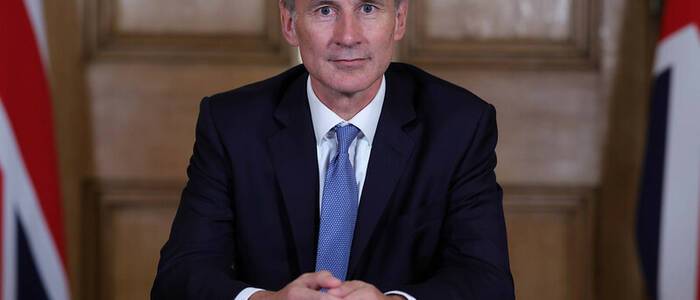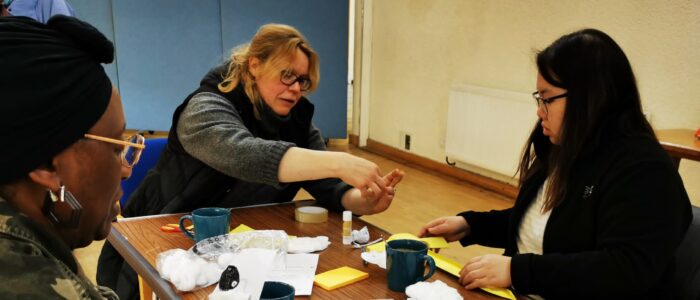Response to the Autumn Statement

Jeremy Hunt’s speech on 17 November did not deliver the heavy blow to public services that many were expecting. However, it did little to brighten the gloomy forecast for the months ahead. While we welcome the increased spending on health and social care and schools, the rise in the minimum living wage, the commitment to see benefits and the state pension increase in line with inflation, and one-off cost-of-living payments continuing to be provided to the most vulnerable, there is no doubting that we face tough times ahead.
What does this mean for faith communities?
Faith communities will be hit by increasing prices in the same ways as everyone else. This, and the constraints this will place on volunteer activity and the provision of community services, should not be downplayed. However, in the same way that faith communities and faith-based organisations rose to the challenges of the pandemic, we are confident that they will again provide some of the most efficient, effective, comprehensive and compassionate responses to needs in their local communities in the months ahead.
It is clear that different levels of government have confidence in faith-based responses too. As mentioned in Keeping the Faith 2.0, produced by the APPG on Faith and Society, faith groups are increasingly being looked to as assets to local communities, and as competent delivery partners. As a result of the competency they demonstrated during the pandemic, we can expect more public services to be provided in partnership with local faith groups going forward.
This sentiment was echoed in a meeting convened by the Greater London Authority last week, where they invited us and a small grouping of other interfaith leaders to not only share the needs being faced by our communities, but to present solutions that faith groups might provide.
Meanwhile, at the national level, the Faith New Deal pilot projects are well underway. Through this scheme, sixteen faith-based groups will receive a share of £1.3 million to develop innovative interventions to support the most vulnerable in their communities in partnership with councils, schools, police, health providers and voluntary groups. FaithAction are partners in two of these projects, and we will be seeking to ensure further funding continues to emerge through this scheme.
How should faith groups respond?
There is confidence in the ability of faith communities to meet local community needs during the cost-of-living crisis. But what might this look like? Our conversations with faith leaders and councils have provided us with three insights we wish for members to keep in mind as they seek to serve the most vulnerable in the difficult times ahead.
Firstly, one of the biggest barriers faith groups and local public services alike are coming up against in meeting local needs is the stigma associated with asking for help. For example, local authorities have learnt that pop-up support for debt advice should be placed in areas of heavy public footfall where people can be anonymous, rather than on residential streets where neighbours may notice one another. Likewise, for faith groups opening their doors as a warm venue this winter, consider doing so by providing a service such as a baby and toddler group, an exercise class, or a Café Connect, rather than simply opening your doors. This way people can be warm without feeling stigmatised.
Secondly, while the headlines speak of inflation, interest rates, and wholesale energy prices, the cost-of-living crisis is not merely economic. For example, many of the faith leaders we have spoken to have raised mental health concerns as an equally serious issue facing their communities at present. The support that faith groups should seek to provide, and which they so often naturally do, is to support each person as a whole – offering relational, emotional, social and spiritual support, in addition to doing what they can to provide for material and economic needs.
Finally, there is one thing that was mentioned throughout the Autumn Statement, though it has not appeared in many subsequent articles: the importance of compassion. In the opening lines of his speech, Hunt listed the priorities of ‘stability, growth, and public services’ before emphasising that ‘We also protect the vulnerable because to be British is to be compassionate’. While many may query whether compassion is an inherently British value, it is certainly a religious one. Regardless, the point is that in addition to the right policies and programmes – or, in fact, prior to them – what we need most in this crisis is compassion. Compassion has to be the starting point. And despite constraints on our wallets, compassion is something that faith groups have in abundance.
If you haven’t already, why not take the next 3 minutes to tell us your thoughts on the cost of living crisis, the response of faith groups, and what we might do to help, in our Winter Temperature Check survey?
Image courtesy of Number 10, https://www.flickr.com/photos/number10gov/52427334811/



